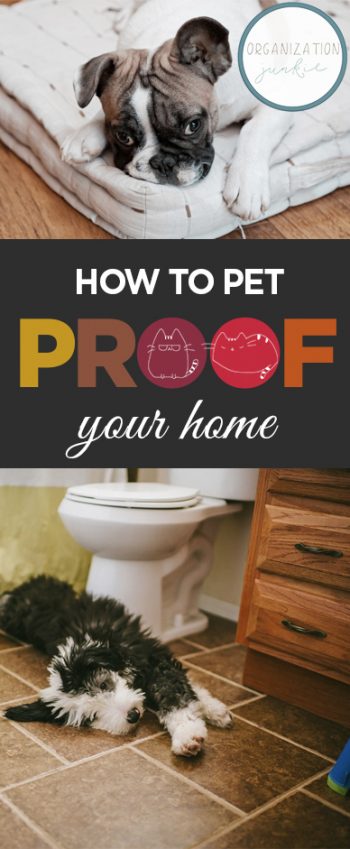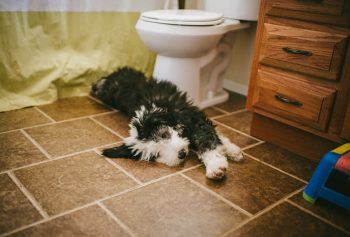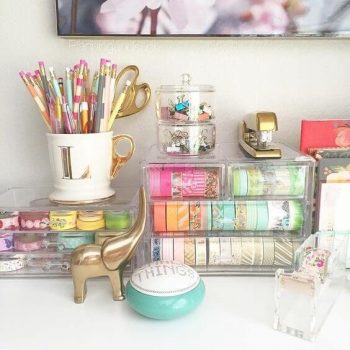
We usually think about baby proofing homes, but what about pet proofing? Pets are curious too, often leading them to get into trouble. When you decide to bring an animal home, they’ll need a safe environment — and you’ll need to keep them out of your stuff! Here are some hints for pet proofing your home.
1. In the Living Room
Make sure any houseplants are 1) non-poisonous and 2) out of reach. Ensure any floor vents are properly covered, and that power cords or cables are unaccessible to curious paws. If you have breakable decor, make sure things are secure enough that they can’t be knocked over. If you have small kids’ toys or games with small pieces, dogs and cats can also choke on them if they get are left lying around.

2. In the Kitchen & Bath
In the bathroom, pets will get into your medicines if they’re within reach. Even over-the-counter medications for humans can be fatal for them. The same goes for lotions, shampoos, cleaning supplies, and even some people foods kept in the kitchen. For example, foods with alternative sweeteners often contain sugar alcohols. Sugar alcohols are extremely toxic for pets, and can even cause kidney failure. Consider child-proof cabinet latches, and keep all potentially hazardous items out of reach. You’ll also want to keep the toilet lid down and make sure trash cans are securely covered.

3. The Bedroom
We have a dog who is fascinated with socks. If she comes across a sock or a pair of socks, she’ll eat them. A couple of days later, she’ll throw them back up. While slightly humorous, it this could also give her a dangerous blockage. In your bedroom, it’s best just to not leave clothing, shoes, or other tempting things lying within reach. Buttons and other small things make tempting chew-fodder, but are also choking hazards. Drawers left open can also make tempting places to sleep, so check for this before closing them.

4. Yard & Garage
Chemicals left on the garage floor or lower shelves can be fatal for curious pets. Keep them up higher, and keep an eye on your pets around tools and other items that they might like to chew. In the yard, make sure you aren’t growing plants that are poisonous for domestic animals, and ensure your fencing is secure. Also, when the weather is very hot or very cold, consider letting outdoor pets come in for the night, and always provide shelter, shade, and plenty of water. Check that water hasn’t evaporated or become frozen.




Leave a Reply